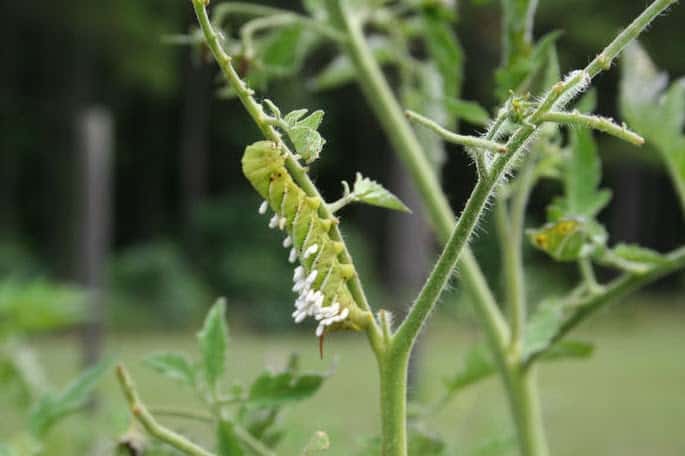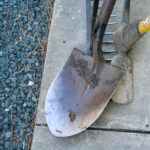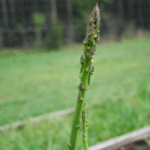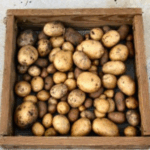Biological control for tomato hornworm includes predatory wasps. These wasps lay eggs on the worm. When the eggs hatch, the larvae eat the hornworm. Ew! Gross, but effective.
Biological Control for Tomato Hornworm
Nature provides a very efficient biological control for tomato hornworm in the form of a parasitic wasp. Until I moved to Virginia, I had never seen the tomato hornworm. It’s also known as the tobacco hornworm, and since this area was planted heavily with tobacco up until about World War II, I’m guessing there’s a thriving insect population.
The first year that I planted tomatoes in Virginia, I planted them in pots and kept them near the house. We hadn’t created the vegetable garden yet so I tended my little planters and waited for the tomatoes. Then I came out one day to find the plants absolutely stripped bare of leaves…and these big, ugly worms on the bare stems.

/ DepositPhotos.com
Marigolds for Hornworm Natural Control
I plucked them off and killed them manually, but that forced me to do some research on tomato hornworms. The next year, I planted marigolds around my tomatoes. It’s thought that tomato hornworms hate the smell of marigolds. Among the Master Gardeners in my class this past winter, some said they had good luck with marigolds, others did not. Those who did have good luck said that they planted old-fashioned varieties of marigolds, those with a very strong scent. I usually planted marigolds all around the tomato beds, but this year, I forgot. We have seen some tomato hornworm damage but fortunately not too much.
Parasitic Wasps and the Tomato Hornworm
I stepped outside yesterday to pick tomatoes and saw this fellow.

Those white things along his back are biological controls in action. The hornworm becomes the nursery of a parasitic wasp.
The parasitic wasp stings the tomato hornworm and lays her eggs inside his body. Like something from a horror movie, the larvae feed on the living hornworm, eventually killing it and emerging to start the cycle anew.
If you see a tomato hornworm with these white spine-like things poking out from its body, what you are seeing is nature’s way of keeping the hornworms in check…it’s the action of the parasitic wasp. You can leave it alone, as the worm will be dead soon and more of the helpful insects will emerge to keep the hornworm and other garden pests in check.
For more information on tomato hornworms and parasitic wasps, see:
Other wasps may be found in the garden. Learn more about the bald-faced hornet (or wasp).





Wow. I’ve read about this before but never actually seen a hornworm with the parasites. Great photo.
Since I put a birdbath next to the vegetable garden, my hornworms have been kept to a minimum. I think some birds enjoy eating them!